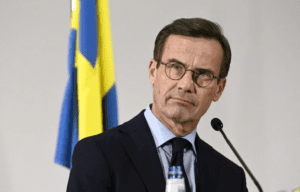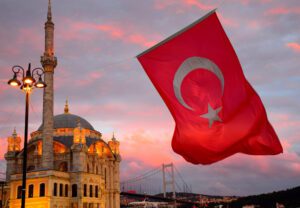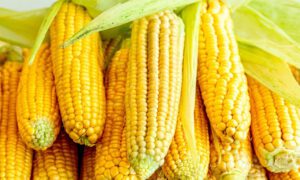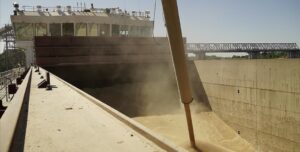
Stockholm is unwilling or unable to fulfill Turkey’s requirements, which it put forward as a condition for approving Sweden’s bid to join NATO, Scandinavian Prime Minister Ulf Kristersson said.
“Turkey confirms that we have fulfilled the conditions we agreed to. But the Turks also want things that we cannot or do not want to give them,” the Swedish prime minister was quoted as saying by Western media on Sunday.
At the same time, Christersson expressed confidence that Turkey would agree to Sweden’s membership in the alliance.
The protocols for Finland and Sweden to join the North Atlantic Council were signed by NATO countries on July 5, 2022. These states will join NATO as soon as all members of the alliance ratify the accession protocols. Of the 30 NATO nations, Sweden and Finland’s membership in the alliance has not been ratified by Turkey and Hungary.
Turkey has blocked the accession process, demanding that the Nordic countries declare Kurdish organizations terrorist and extradite those accused of terrorism, as well as lift the ban on arms supplies to Ankara.
Finnish Defense Minister Antti Kaikkonen suggested in late December that his country would become a member of the alliance by the Vilnius NATO summit of July 11-12, 2023.

President of Ukraine Volodymyr Zelenskyy after telephone talks with Turkish President Recep Tayyip Erdogan said that Turkey is ready to take part in the implementation of the Ukrainian Formula World.
“Talked with Turkish President Recep Tayyip Erdogan. We touched on the topics of cooperation on security, in particular with regard to the ZAZ – there should be no invaders there, the exchange of prisoners of war, the development of the “grain” agreement. I was glad to hear that Turkey is ready to participate in the implementation of our Peace Formula,” Zelensky wrote on Twitter.

Ukrainian producers in December 2022 got the right to export poultry and poultry products to Canada and fish products to Turkey, the website of the State Service of Ukraine for Food Safety and Consumer Protection (Derzhsprodpotrebbezopasluzhba) said on Wednesday.
According to her, the new markets for business are open thanks to the joint work of the department, the Ukrainian Ministry of Foreign Affairs and foreign embassies.
The relevant work to open the Canadian market for Ukrainian poultry meat and meat products began back in 2019, when representatives of the Canadian certification body CFIA conducted an inspection of the state production control system at Ukrainian enterprises. A list of Ukrainian companies that are now allowed to export poultry meat and poultry products to Canada has been added to the CFIA database, and requirements for importing meat products from Ukraine to Canada have been published on the organization’s official web portal.
According to the Service, in December Ukraine also received the right to export fish products to Turkey for export. The form of the relevant certificate has already been posted on the official web portal of the State Service of Ukraine for the Protection of Consumer Rights.
As reported, during the martial law in Ukraine has increased the number of enterprises-producers of products of animal origin, which have the right to export their products to the European Union. Their number increased by 33 (or 8.5%) compared with winter 2021 – up to 418 from 385. The number of Ukrainian exporters of dairy products increased the most – by 11, fish products – by six, snails and products from them – by five.

Three bulkers loaded with wheat, corn and sunflower oil departed from Ukrainian ports on Tuesday, the Joint Coordination Centre (JCC) said.
“The Joint Coordination Centre (JCC) reports that three vessels left Ukrainian ports today [December 6] carrying a total of 91,050 metric tonnes of grain and other food products under the Black Sea Grain Initiative,” the JCC said.
MV Sugar will deliver 37,500 tonnes of sunflower oil to India, MV Alexandros III will transport 31,050 tonnes of corn to Spain, and MV Moayad Y loaded with 22,500 tonnes of wheat is destined for Turkey.
Six ships transited the maritime humanitarian corridor on December 6 on their way to Ukrainian ports.
“As of 6 December, the total tonnage of grain and other foodstuffs exported from the three Ukrainian ports is 13,136,453 metric tonnes. A total of 1,057 voyages (529 inbound and 528 outbound) have been enabled so far,” the JCC said.

Two ships carrying more than 33,000 tons of soybeans left Ukrainian ports on Friday, the Joint Coordination Center (JCC) reported.
“Two ships left Ukrainian ports on Nov. 25, carrying a total of 33,165 tons of soybeans as part of the Black Sea Grain Initiative,” the report said.
The dry cargo ship Port Alberni will carry 26,765 tons of soybeans to Spain, the ship CS Cihan will carry 6.4 thousand tons to Turkey.
SKC notes that 28 loaded dry cargo vessels are preparing to be inspected in Turkish territorial waters to proceed further to their destinations.
“As of November 25, the total tonnage of grain and other agricultural products exported from three Ukrainian ports is 11,940,672 tons. A total of 983 vessels were allowed to move so far: 489 to arrive at Ukrainian ports and 494 to leave them,” the JCC stressed.

Negotiations are currently underway with Russia on the status of the “grain deal” after Moscow announced yesterday that it was suspending participation in it, Bloomberg reported on Sunday, citing an unnamed Turkish official.
“Negotiations with Russia on the Black Sea “grain deal” are being held on Sunday, they will continue on Monday, a representative of the Turkish authorities said,” the agency reports.
According to the source of the agency, there are grounds for optimism, despite the current situation.
He also said that ships that have reached Istanbul are being inspected, but no new ships loaded with grain are leaving Ukrainian ports at the moment.